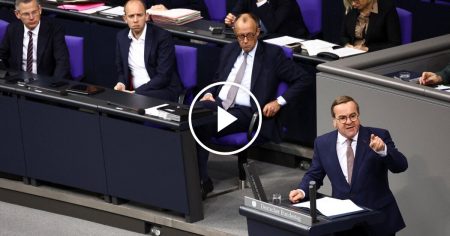Unplugging Progress: The Trump Administration’s Puzzling Wind Energy Rollback
In a surprising move that has caught both industry insiders and environmental advocates off guard, the Trump administration has begun halting multiple wind energy projects that were already approved, financed, and under construction. These projects, representing significant investments in renewable energy infrastructure across several states, now find themselves in bureaucratic limbo with little explanation provided for the sudden change in policy direction.
The administration’s decision appears particularly perplexing given the advanced stage of many of these projects. Some had already broken ground following extensive environmental reviews, secured necessary permits, arranged financing, and created contracts for labor and materials. Local communities had prepared for the economic benefits these developments promised, including job creation, tax revenue, and infrastructure improvements. For rural communities especially, these projects represented rare opportunities for economic revitalization. Now, those same communities face uncertainty as the promised benefits hang in the balance without clear reasoning behind the administrative roadblocks.
When pressed for explanations, administration officials have offered only vague references to “additional reviews” and “policy reconsiderations,” leaving project developers, investors, and local stakeholders frustrated by the lack of transparency. This absence of clear justification has fueled speculation about the administration’s motives, with some critics suggesting the moves may be politically motivated rather than based on substantive policy concerns. The timing has raised questions about whether these decisions align with broader efforts to support traditional fossil fuel industries at the expense of renewable energy development, despite wind energy’s growing cost-competitiveness and its role in creating American manufacturing and construction jobs.
The economic implications extend far beyond the immediate projects. Investors who committed hundreds of millions of dollars based on regulatory certainty now face potential losses and have expressed concerns about future investments in American energy infrastructure. Industry analysts warn that this regulatory unpredictability could damage America’s standing as a reliable market for energy investment, potentially driving capital to more stable regulatory environments overseas. Meanwhile, manufacturers of turbines and components, many located in states that supported the administration politically, find themselves caught in the crossfire as their order books suddenly face cancellation risks.
Environmental considerations add another dimension to the controversy. These wind projects represented significant progress toward reducing carbon emissions and diversifying America’s energy portfolio. Many states had counted these developments toward their renewable energy goals and emissions reduction targets. The sudden halting of these projects threatens to undermine these environmental objectives while providing no alternative pathway to achieve similar benefits. Environmental advocates have pointed out the apparent contradiction between the administration’s stated goals of energy independence and the obstacles being placed before domestically-produced renewable energy.
The lack of transparent process in these decisions has drawn criticism from across the political spectrum. Conservative voices favoring regulatory certainty and free-market principles have joined progressive environmental advocates in questioning the wisdom of arbitrarily stopping projects that had already navigated the extensive regulatory process. As legal challenges mount and congressional inquiries begin, the administration faces growing pressure to either provide substantive justification for these decisions or allow the projects to proceed as previously approved. The outcome of this unfolding situation will likely have significant implications for America’s energy future, the credibility of its regulatory processes, and its commitment to both economic growth and environmental stewardship in the rapidly evolving global energy landscape.








